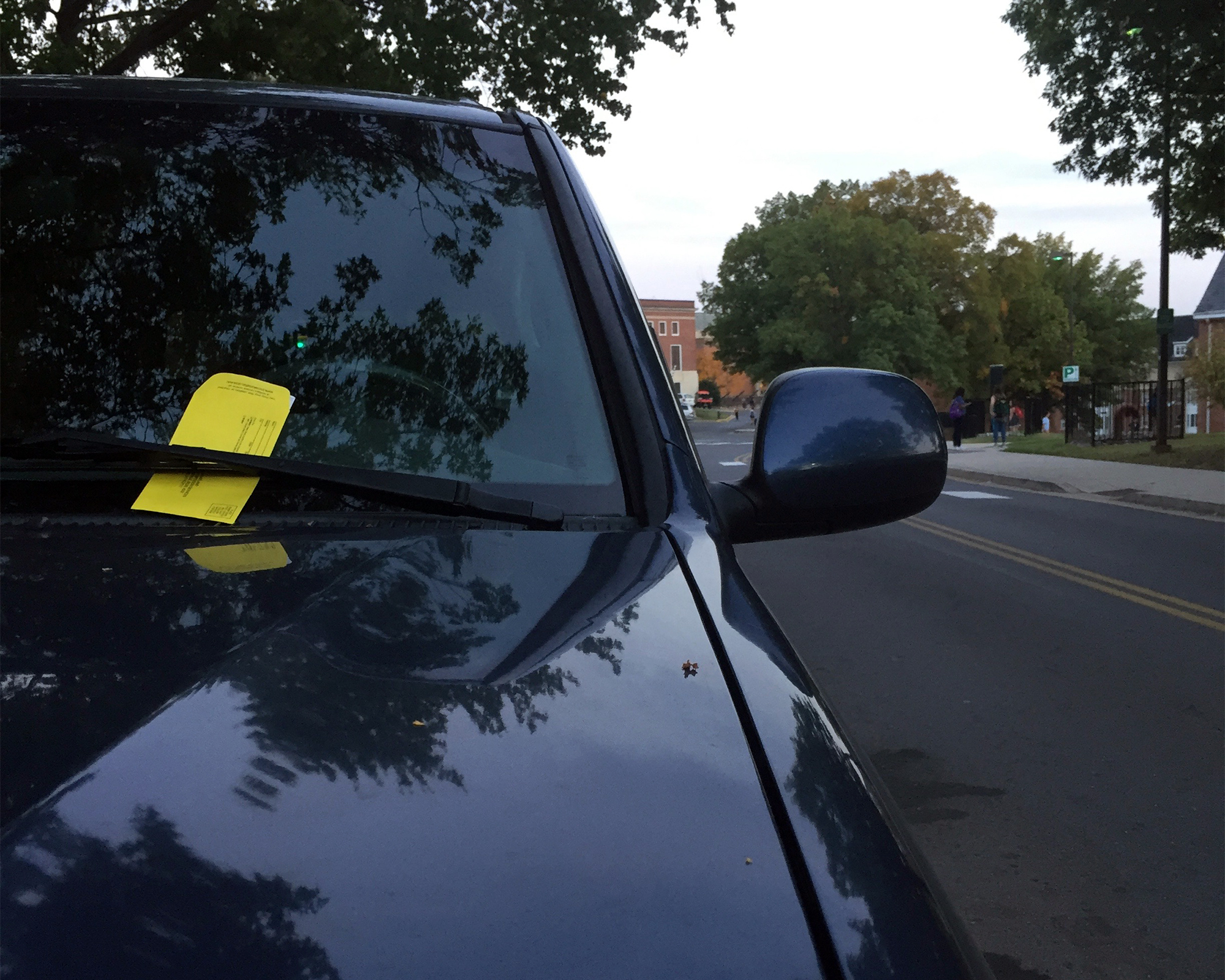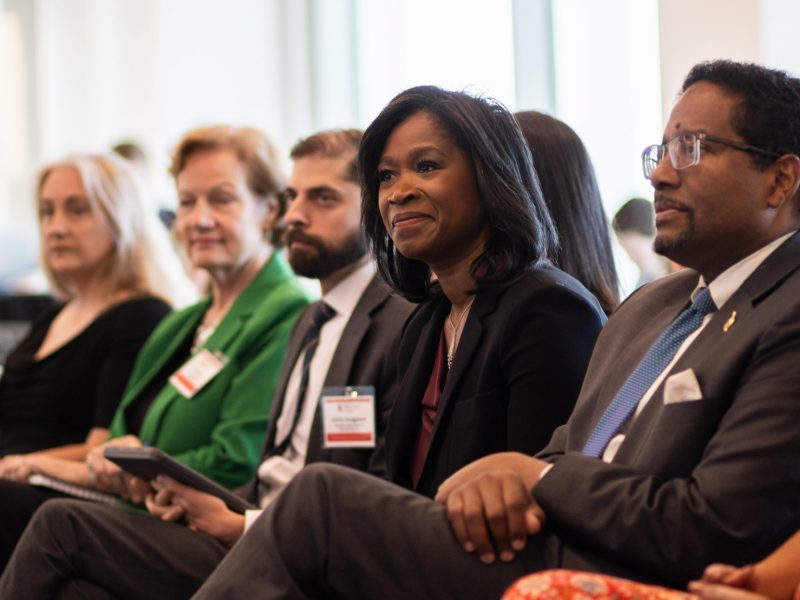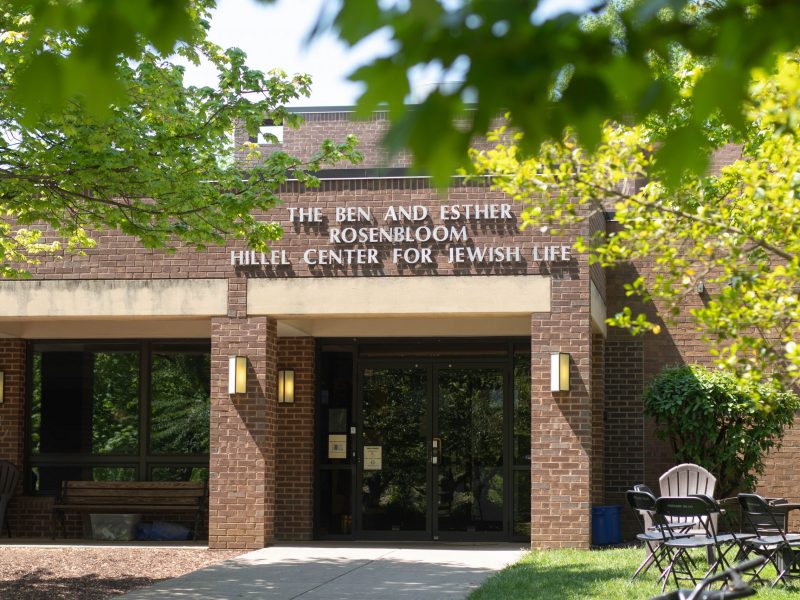DOTS’ video chat appeals launched last semester, but many University of Maryland students are not aware that they have this option when appealing parking tickets.
The typical citations process starts when a student receives a ticket, and he or she has to choose to either pay it or appeal it. With an appeal, the student can send it in a written form, get a district court judge to hear the case or make an appointment to talk to a Department of Transportation Services employee about the ticket over Skype.
Students who appealed citations in the 2015-16 year had about a 27 percent chance of getting their tickets voided — 1,935 of the 7,254 citations.
The main benefit of the video chat option is that it facilitates two-way communication about the citation, Department of Transportation Services Director David Allen said. The video review involves speaking with a DOTS Citation Review Unit member and it lasts five minutes or less, according to DOTS’ website.
“We got a lot of comments from people saying that they wanted the opportunity to be able to talk to someone and to be able to ask and answer questions about the ticket,” he said. “Some people believe that a conversation is more in their wheelhouse compared to having to write out an explanation.”
While student appeals are given equal consideration regardless of the platform, students “have a better opportunity to respond with information that may not have otherwise been factored into an appeal decision,” according to DOTS’ website.
However, some students, such as sophomore economics and philosophy major Megan Boos, said they didn’t know that a video chat option was available to them.
“I wasn’t [aware of the option] because every time I would call, they would tell me I have to go onto the website and write an appeal and submit it and wait for them to see it,” Boos said. “Also, on the citations that they put on your car, they say you have to write in a written appeal.”
Senior economics major Aisha Mustafa said she also wasn’t aware of the video chat option, and found out about her citation this past May through an email. In her case, she was in a rush and had accidentally parked in a spot right next to the spots that were free during finals week.
“I got an email from DOTS, and my heart just skipped a beat,” Mustafa said. “I emailed them, I wrote them a letter and I attached a proof of my final exam, and I told them that it was an honest mistake. …They approved the appeal and they reduced my fine.”
While senior Elizabeth Pickens hasn’t used the video chat appeal option, she said that overall her claims have been treated fairly.
“I saw [the video option] on the website but I didn’t understand fully what it did, so I didn’t use it at all just because I had actual documents that I was submitting, and I felt those documents were sufficient enough to prove that I paid for parking,” the history major said.
Regardless of her appeal, Pickens said it’s important that people are aware of all of the options, and that DOTS should “explain [the video chat] better because I still don’t know what that means.”
The “Reviews & Citations” tab on the DOTS website has information and instructions listed out about the appeals process, including the video chat option. This includes a FAQ document that offers information on how to set up a video review appointment and what types of documents a student might need to have on hand. Appointments — which must be made within 30 days of when a citation is issued — are set up on a first-come, first-serve basis, and decisions are typically made within two business days of the appointment, according to DOTS FAQ.
Allen said the department does its best to be fair when it comes to considering appeals.
“As far as I’m aware… we’re the only university in the country that has a video appeal option,” he said. “I think we do more than anyone else to provide appeal opportunities for our students.”
If a student does not receive a desired outcome from their review, DOTS offers a second round of appeals — reinstated in fall 2015 — for students who can present new information supporting the appeal. There were 153 second appeals in the 2015-16 year, resulting in seven voided appeals and 18 reduced appeals.
“After [students] receive their response, if they don’t like it, they can have a second shot at it or to appeal that decision to a group of students that don’t work for DOTS,” Allen said. “They are part of the appellate board for the campus, and they make the decision based on any new information they may get from that student.”
He noted that once a student decides to go to court for the first appeal, he or she waives the right to have a student group review the case.



